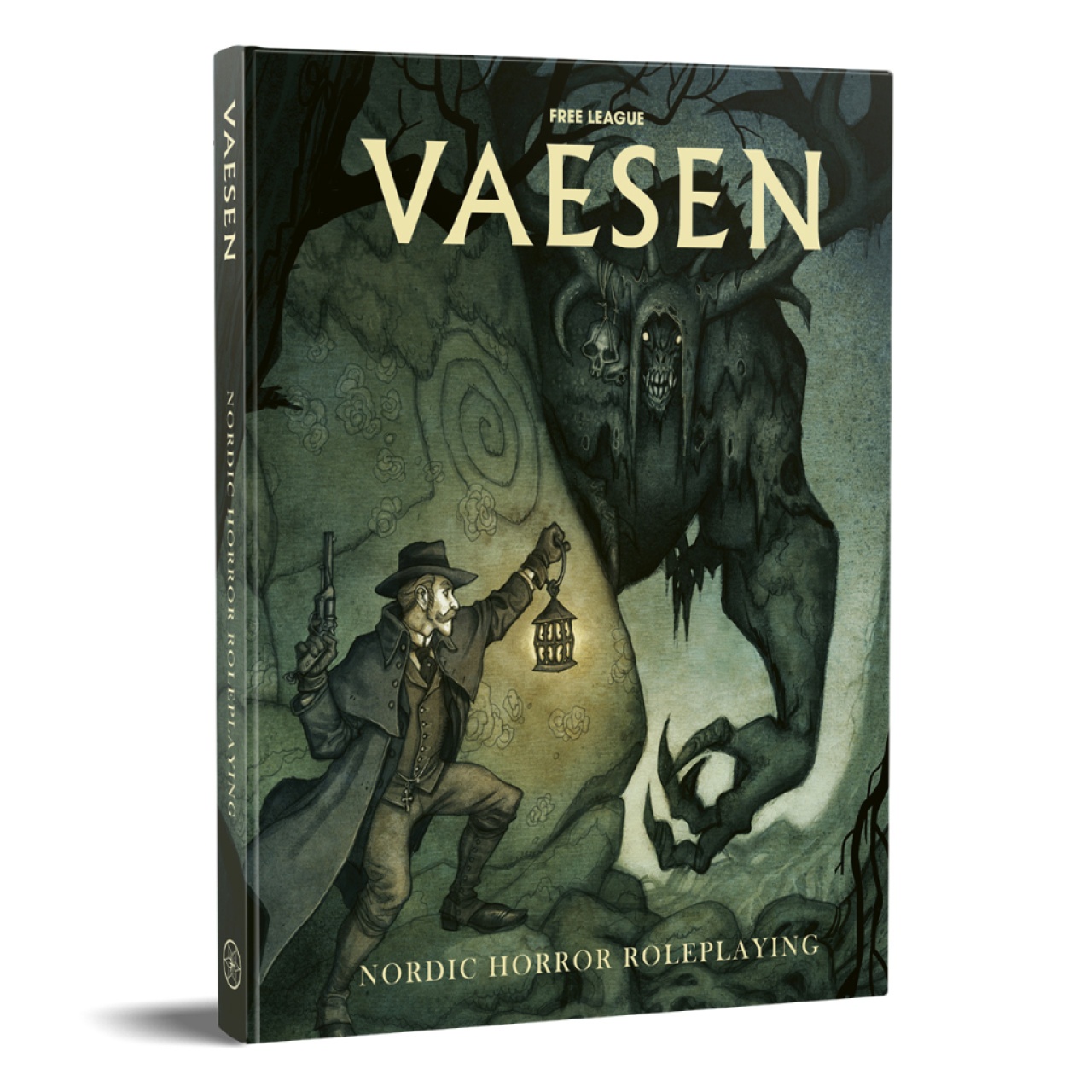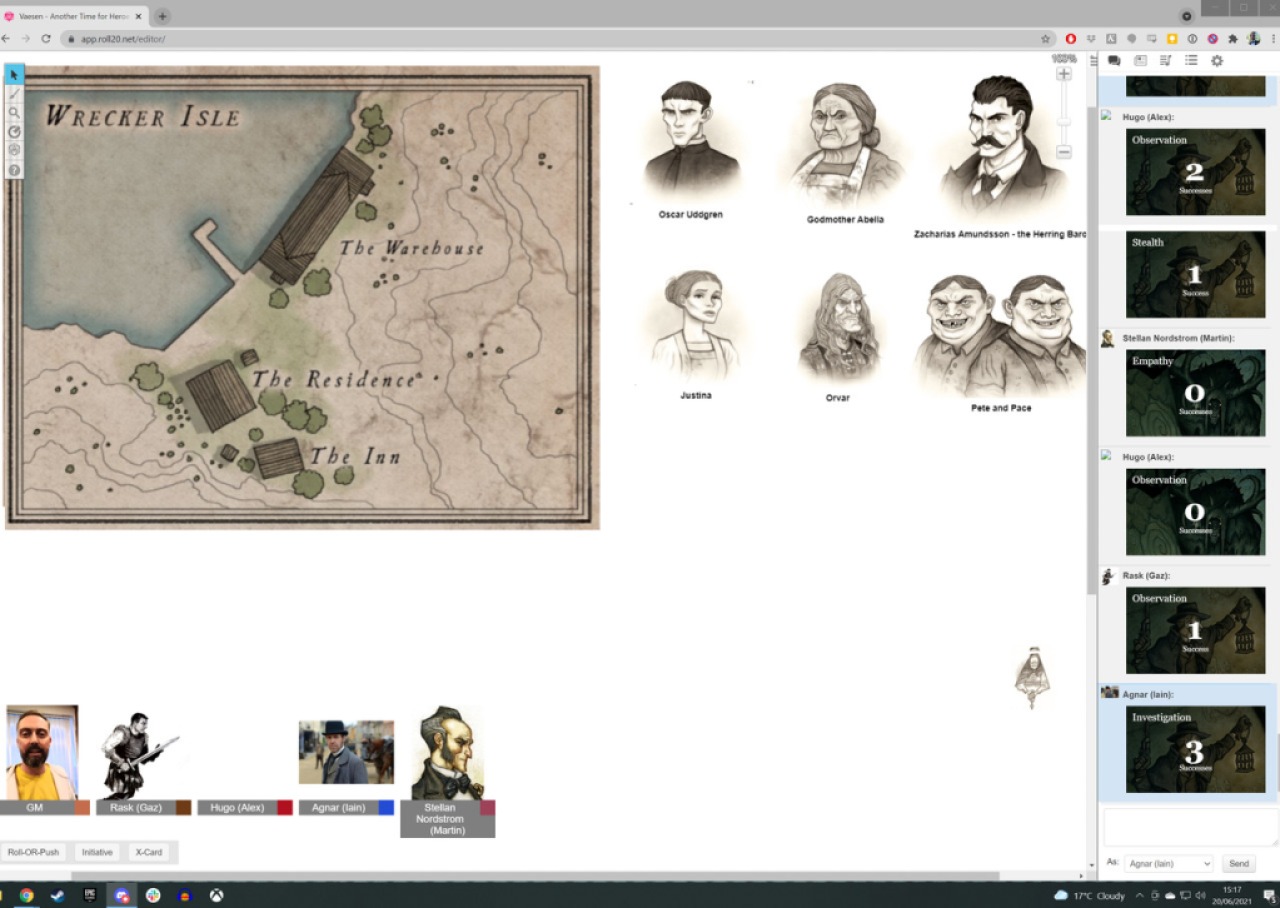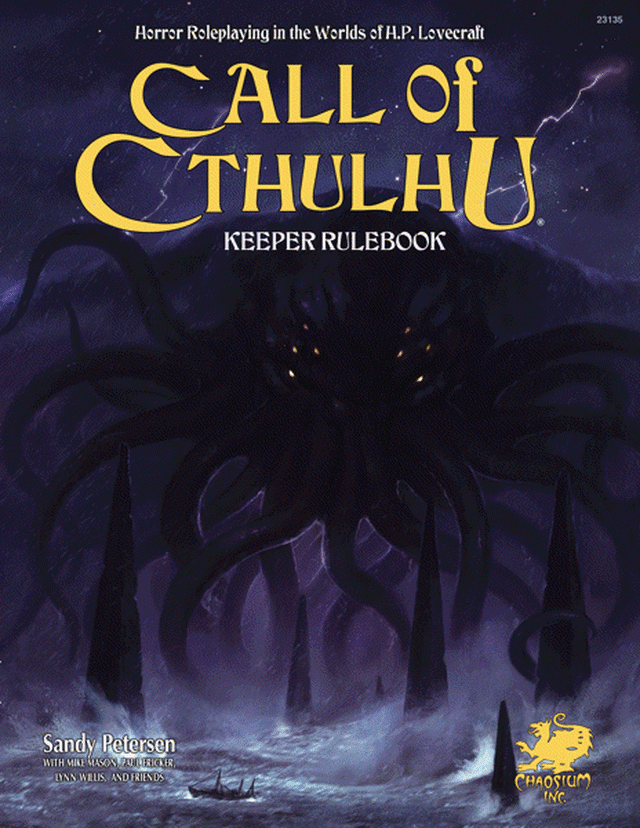Vaesen – Player Review
This is a review of the Vaesen RPG from a player’s viewpoint. I’ve spoken previously about how I think the lack of this sort of review is an oddity in RPG criticism. I have read some of the book, just the parts relevant to my character and the rules.
Upsala was a strange town. Tucked away in a god forsaken corner of Sweden, I would never have visited if it wasn’t for the summons. I had heard talk of The Society but given it no heed for more than a decade, just whispered talk amongst those of us who can see the supernatural, the Vaesen. Thursday’s Children they call us.
Here I was though, in this odd place. A castle given to me and others by the previous head of the society in her will. I knew everyone who arrived of course, my abilities meant that I had crossed paths with others of my kind regularly throughout my life. Even more so given my job, a Private Detective.
We had not settled into the place for more than a day, when a letter arrived requesting our attention at a village to the west. We gathered our supplies and set off into the mists of this strange land, hoping to help however we could.
Vaesen is my first encounter with Free League Publishing. This RPG publishing juggernaut burst onto the scene in 2018 with post-apocalyptic game Mutant Year Zero and then quickly followed it up with the critically acclaimed Tales from the Loop, a game of being kids in an 80s Sweden that never was, full of Robots, mysteries, and weird science. Since these two titles they have published a slew of titles and products including the Alien RPG.
Vaesen is a game of monster hunting in an imaginary version of Sweden, just at the start of the industrial revolution. The old ways are fading, the sacrifices to old spirits and dark woods are being abandoned. The creatures, the Vaesen of the title, are not best pleased with this change in circumstances.
You play a Vaesen hunter of sorts. Gifted with the ability to see the Vaesen, you and your fellow hunters have been bequeathed an old castle in Upsala. From there you will set out across the country to solve mysteries and bring the Vaesen to heel. The setup is such that you are anti-Vaesen, on the side of progres, even if that progress ruins lives and livelihoods along the way.
It being an investigative game, meaning there is a certain amount of buying into the format. Unlike my favourite games, the game is very much reliant on the GM presenting and pushing the narrative forward.
I am generally not a fan of investigative games, partly because I feel like there is a conclusion already established and we are just filling in the steps until the solution pops out. So far the Vaesen sessions I’ve played feel like they have a good number of divergent paths to follow, naturally coming back to the conclusion at the end of our work. From what our GM, the excellent Guy Milner, has said this is down to some good advice for the GM in the book.
Mechanically, I really like the core system. You have 4 statistics and some associated skills. Testing means rolling stat + skill in six sided dice and counting how many 6s your rolled. You can manipulate this result by taking a condition to re-roll all your failures. The conditions can be physical or mental and impact future dice rolls, but the temptation to re-roll dice at a critical moment means you are going to end up a bit battered about by the end of a session. It’s not the fanciest system ever but it really feels like you get to make an interesting decision about when you push yourself and when you let the dice fall as they may.
Conditions can also come from being hit in combat. When you get into fights, and you will, the rolls stay simple, actions are bold and impactful, and a straight forward card based initiative system keeps the game flowing.
Unlike a lot of RPGs you don’t have endless equipment. Yeah your class will give you some bits & pieces, but until you build up the castle you’ve inherited, you feel under equipped. That’s a good thing, it fosters a sense of going up against the unknown with your wits & smarts being more of a factor than guns & gadgets.
That idea runs through Vaesen a lot. Sure you will fight weird creatures, but a lot of the time the point of a session is to find out how to appease, drive off, or otherwise neutralise the entities troubling the place you are visiting. The answer is rarely as simple as violence.
The castle is a brilliant piece of world building that helps bring the players together quickly. You’ve all inherited it from former members of the society and its twisted corridors and byzantine architecture hide all sorts of secrets. As you play, in between sessions you will wander around it, discover new rooms, and fill it with all sorts of companions and staff. You remake the castle in your own image, for better or worse.
Vaesen pushes you out into a world where society is accelerating away from its traditions into a bright and shiny future. It puts you on the side of progress and asks how you reconcile the past, the Vaesen, with the march of progress. It asks ‘are you on the right side?’ and looks at you, waiting for the answer.
Mystery Machine
I’ve enjoyed Vaesen, and I’ll likely be playing some more. One of the upshots of this game is that it has got me thinking about investigative focused games and their influence on RPGs.
The games I really enjoy involve lots of player input, creation, and improvisation. They share the burden of storytelling around the table, and the GM feels less alone in bringing the fun to the table. It struck me over the course of our Vaesen run so far, that this type of play is impossible investigative games and that fact has done some degree of harm to the discussion around RPGs.
The nature of investigative games means that there is a prescribed path to follow. Now this is not unique to this genre and we could go back and forth forever about the benefits and pitfalls of railroading. In an investigation focused game the point is that the players are uncovering a mystery, maybe there are different paths, but the conclusion will be roughly the same. This means that players need to buy into the style of play, and that is where a good session zero can really benefit the culture of play around the table.
Now Vaesen has advice on how to construct investigations and it is good that it does. Mechanically speaking there is nothing to support the unfolding of a mystery. Call of Cthulhu is the same, advice on how to run and construct, but no real mechanical support for that. The Gumshoe system is the game I can think of that comes closest to providing systems that help the players uncover clues, but still we are following a roughly straight line.
This is all preamble to this thought. Call of Cthulhu is arguably the first investigation focused game. It has no mechanics to support the unfolding of a mystery. This has led in part to the common idea that ‘System doesn’t matter’
To me this is one of the most harmful ideas in RPG design. If the system doesn’t matter, why put any effort into that aspect of your game? It has led to the ideas of ‘systems’ being applied to genres they are ill equipped to handle and that we shouldn’t try to make better games as you already have the one that you need.
If the system doesn’t matter, why the edition wars? I have met lots of people who love Call of Cthulhu, and that’s fine. I have no problem with that. Some of these people also think ‘system doesn’t matter’ whilst vigorously defending Call of Cthulhu. I am then driven to ask “What are you defending?”. If “system doesn’t matter”, then it’s the experiences you’ve had, not the mechanics that you are defending, and that is 100% understandable. It’s not the system you are defending though, that could be taken or left. Right?
One more thing…
I’m a thematically led type of gamer. Theme attracts me to a game first and then I want the mechanics to support that theme. When that connection isn’t present, the game falls flat for me. This applies to everything I play, and I think that disconnect between theme and mechanics is most stark to me in the heavy worker placement focused games and RPGs. In the former the system is all that matters, and in a lot of RPGs, it doesn’t matter at all.
I want the system and theme to intertwine. I need my character to want to do something and the risk and reward of that action to be reflected in the mechanics. When I defend my favourite game Blades in the Dark, I do so in the knowledge that it will bring a unique experience to your table that I hope you will love as much as I do. The mechanics support the theme of being criminals in a strange city, pushing you into desperate situations in order to carve out your own bit of Doskvol for yourself.
Whatever your favourite RPG is, take a long, hard, critical look at it. Do the mechanics really support the theme? If you are recommending it to someone, what exactly are you recommending? Is it the memories you’ve had with the game, or do you genuinely think this setting and those mechanics are a good fit for the person you are talking to? These are hard questions to ask ourselves, and sometimes the answers are uncomfortable. I hope in doing so though, we can help people find the right games for them, and grow the hobby not only in population, but in our approach to design.
Thanks for reading this article. If you’ve enjoyed our work then please give it a share. If you want to go further you can support us on Patreon or find other ways to support us below. We really appreciate any support you can give us.





















1 Response
[…] these are well regarded and have starter sets to get you on your way. They also have a game called Vaesen about hunting monsters in turn of the industrial age Sweden which I have enjoyed […]